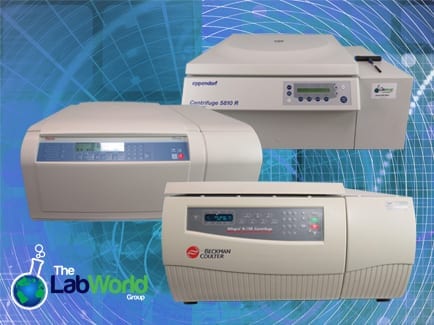What to Look for in a Refrigerated Centrifuge
Centrifuges are utilized in laboratories across the world in a multitude of scientific fields and disciplines, but at their most basic level, a centrifuge is a motor that spins to create centrifugal force to separate fluids, liquids, or gas based on density. But don’t let this simplistic explanation fool you, not all centrifuges are created equal; they come in all shapes, sizes, speeds, and configurations. If you’ve determined a refrigerated centrifuge will fit your lab’s needs, here are a few things to consider before making a purchase.
Temperature
Operating a centrifuge creates heat itself, so oftentimes this leads to samples being spun at higher temperatures than the operators realize. Faster centrifuges are capable of generating so much heat that samples may actually overheat without the addition of refrigeration. Before purchasing a refrigerated centrifuge, make sure you investigate where the makers are measuring the temperature within the centrifuge. Temperature may be sensed in the bowl, the rotor, or both and specs may be misleading. If temperature control is a large concern for your research, be sure to ask a lot of questions about how these specs were determined.
Requirements & Restrictions
As previously mentioned, centrifuges come in all shapes and sizes, but one particularly divisive aspect of this in the difference between a floor and bench top model. Bench tops are typically more compact, this also means they have a smaller capacity than their floor model counterparts. For smaller labs with limited space, however, a floor model may take up too much space. Before investing in any piece of equipment, it’s important to take into consideration how much space you will have to actually operate it. It’s also important to take into consideration what types of samples you’ll be spinning. This can help you determine the specific speed range your centrifuge will need to have.
For a complete look at our inventory of Refrigerated Centrifuges click here.














